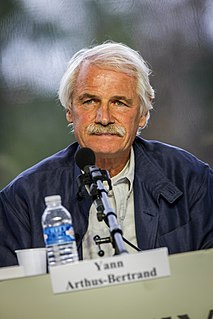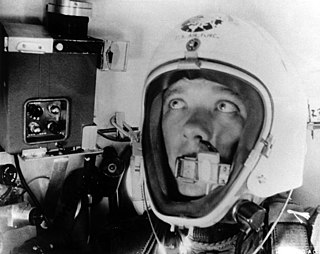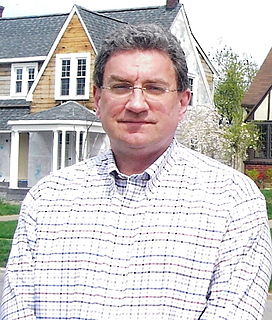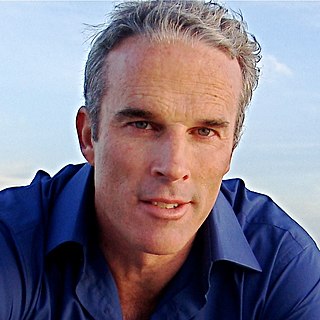A Quote by Julie Payette
When I saw the Earth from above, personally, as a spacecraft operator, it certainly reinforced and drove home the fact that there's one place where we can live right now. The seven billion of us are sharing a wonderful planet, and it's an absolute privilege to see it from above.
Related Quotes
What you aren't ready for being the first time in space - on an emotional and intellectual level - is how looking down at Earth will profoundly affect you. Over the long term, it has changed the way I think about planet Earth. When you go around the planet and look down, you think about the fact that this is the cradle of humanity, that this is a place where seven billion people, 200 countries, live side by side, that we share this place and there's nowhere else to go.
People of peace, men and women of desire, such is the splendor of the Temple in which you will one day have the right to take your place. Such privilege should astonish you less, however, than your ability to commence building it down here, your ability, in fact, to adorn it at every moment of your existence. Remember the saying 'as above, so below', and contribute to this by making 'as below, so above'.
France placed the state above society , democracy above constitutionalism, and equality above liberty. As a result, for much of the nineteenth century it was democratic, with broad suffrage and elections, but hardly liberal. it was certainly a less secure home for individual freedom than was England or America.
Our planet has been around only for four and a half billion years. Let's imagine a planet that has life on it such as life is on Earth and it's seven billion years old. Let's say that planet evolved intelligence. Well, that intelligence would be way more advanced than what we call intelligence here on Earth. How long has intelligence been around on Earth as we've come to define it?
I live in Indiana and teach at Purdue University, a wonderful school with some of the brightest students I have ever had the privilege of working with. My colleagues are powerful and intelligent and kind. The cost of living is low, the prairie is wide, and on clear nights, I can see all the stars in the sky above.
A spacecraft is a metaphor of national inspiration: majestic, technologically advanced, produced at dear cost and entrusted with precious cargo, rising above the constraints of the earth. The spacecraft carries our secret hope that there is something better out there-a world where we may someday go and leave the sorrows of the past behind. The spacecraft rises toward the heavens exactly as, in our finest moments as a nation, our hearts have risen toward justice and principle.
Of the seven billion people who reside on planet Earth, only 25% could, in the broadest sense of the word, be classified as "Christian" (and the percentage who have personally trusted in Christ for salvation is much smaller), meaning that over five billion people in the world are destined to hell if indeed Christ offers the exclusive path for salvation. To many people, such a claim is offensive.
If you're in a subordinate position of some sort and pretty much all of us are at some point in our lives, your general tendency is to try and impress the people above you or person above you so well that they will like you, keep you or maybe promote you. In the process of doing that you are not aware that that person above has insecurities and if you try so hard they may see that you are after their job or that you are better than they are or they might envy the fact you are younger.
































